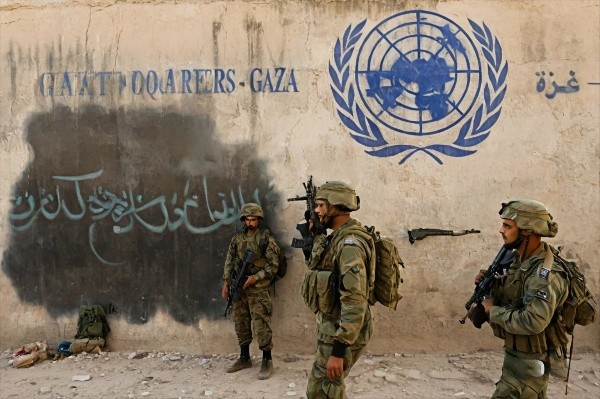Iran’s Plan to Strike Back Against the U.S.
Iran’s Military Preparations Following U.S. Attacks
Loading...

The new Israeli laws will prevent UNRWA from providing life-saving support to Palestinians in Gaza and the occupied West Bank.
Introduction
The recent decision by Israel's parliament to ban the United Nations Relief and Works Agency for Palestine Refugees in the Near East (UNRWA) has sparked widespread condemnation from the international community. This legislation, which labels UNRWA as a "terror" organization, threatens to cut off vital humanitarian support to millions of Palestinians in Gaza and the occupied West Bank.
The Legislative Move
On October 28, 2024, the Israeli Knesset passed two laws that effectively prohibit UNRWA from operating within Israeli territory. If enforced, these laws would severely restrict the agency's ability to provide essential services to Palestinian refugees, who rely on UNRWA for food, healthcare, and education. Established in 1949, UNRWA has been a crucial lifeline for Palestinians displaced during the creation of Israel, serving millions across Gaza, the West Bank, Lebanon, Jordan, and Syria.
Palestinian Response
The Palestinian leadership has vehemently rejected the new legislation. Nabil Abu Rudeineh, a spokesperson for the Palestinian presidency, condemned the Knesset's overwhelming vote, asserting that it reflects Israel's transformation into a "fascist state." Hamas echoed this sentiment, labeling the ban as part of a broader "Zionist war" against the Palestinian people. The Palestinian Islamic Jihad (PIJ) described the legislation as an escalation of genocide against Palestinians.
United Nations Reaction
UN Secretary-General António Guterres characterized UNRWA's work as "indispensable," emphasizing that there is "no alternative" to the agency's operations. He warned that the implementation of these laws could have "devastating consequences" for Palestinian refugees, urging Israel to adhere to its obligations under international law. Philippe Lazzarini, the head of UNRWA, expressed concern that the Knesset's decision sets a "dangerous precedent" that contradicts the UN Charter and Israel's legal responsibilities.
International Condemnation
China and Russia
China's envoy to the UN, Fu Cong, called the Israeli decision "outrageous," asserting that UNRWA plays a critical role in supporting the Palestinian population in Gaza. Similarly, Russia's UN ambassador, Vasily Nebenzia, described the ban as "terrible," warning that it exacerbates the already dire situation in Gaza. He urged the United States, Israel's primary ally, to fulfill its financial commitments to UNRWA.
United Kingdom and Jordan
British Prime Minister Keir Starmer expressed grave concern, stating that the legislation jeopardizes UNRWA's essential humanitarian work. He described the humanitarian crisis in Gaza as "simply unacceptable" and called for Israel to ensure that aid reaches civilians effectively. Jordan's Ministry of Foreign Affairs condemned the ban as a "flagrant violation" of international law, warning of catastrophic consequences for the region.
European Nations and Australia
A coalition of European countries, including Ireland, Norway, Slovenia, and Spain, issued a joint statement condemning the Knesset's actions. They emphasized that UNRWA has a mandate from the UN General Assembly and that the legislation sets a serious precedent for international humanitarian efforts. Australian Foreign Minister Penny Wong also criticized the decision, reiterating the need for Israel to comply with international law to facilitate humanitarian assistance in Gaza.
Switzerland and WHO
Switzerland's Ministry of Foreign Affairs expressed concern over the humanitarian implications of the Israeli laws, while World Health Organization Director-General Tedros Adhanom Ghebreyesus labeled UNRWA an "irreplaceable lifeline" for Palestinians. He condemned the ban as intolerable and a violation of Israel's obligations.
Conclusion
The global response to Israel's ban on UNRWA underscores the critical role the agency plays in providing humanitarian aid to Palestinians. As the situation continues to evolve, the international community remains vigilant, calling for adherence to international law and the protection of vulnerable populations in the region.
Editor
Iran’s Military Preparations Following U.S. Attacks
Troops remain in five strategic locations, raising fears of renewed tensions and long-term occupation.
Opposition forces have taken control of the capital after a significant offensive. Here is how it unravelled.
